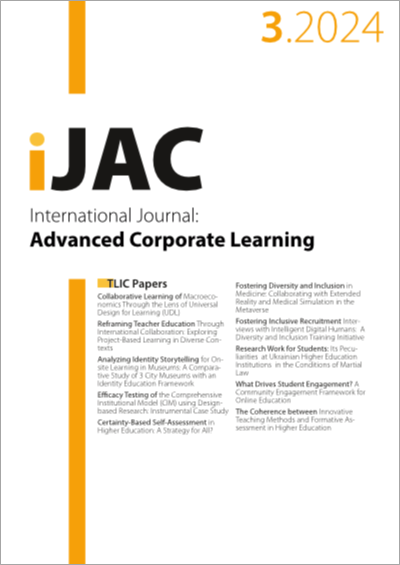Certainty-Based Self-Assessment in Higher Education
A Strategy for All?
DOI:
https://doi.org/10.3991/ijac.v17i3.45675Keywords:
Self-Assessment, Formative Assessment, Metacognition, Degrees of Certitude, Certainty-based Marking, Higher EducationAbstract
This study explores students’ behavior in response to a study-learning system during one semester at university, based on the certainty-based marking strategy. The learning support system pursues to encourage diagnostic formative self-assessment. In total, 258 students complete the full study program and respond to an additional sociodemographic questionnaire. An exploratory study was performed. Two individual variables were considered for basic statistical analysis: gender and prior academic experience. Results show progression of students’ confident responses, especially by the third trial. No differences were found with respect to gender. In contrast, strong differences were found related to prior academic experience. These latter results must be taken carefully, in expectance of further research to look for connections with other individual variables.
Downloads
Published
How to Cite
Issue
Section
License
Copyright (c) 2024 Ana Remesal, Dr. Patricio García-Mínguez, Dra. Judit Domínguez, Dra. María José Corral

This work is licensed under a Creative Commons Attribution 4.0 International License.



